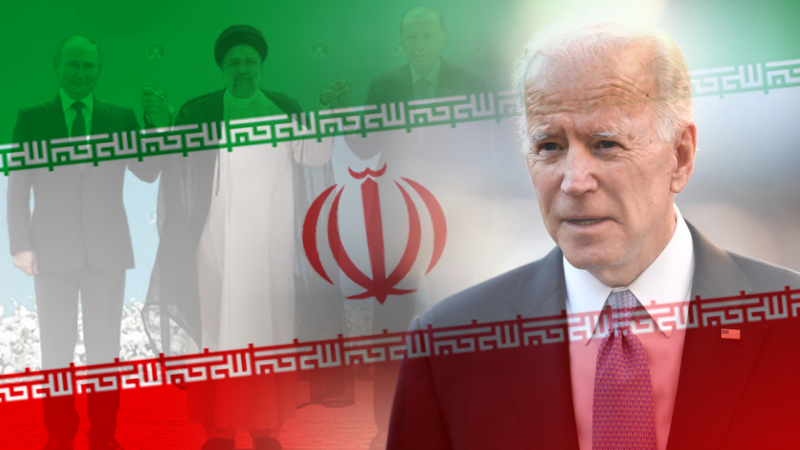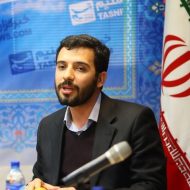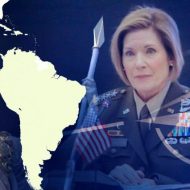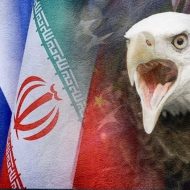Although the tripartite meeting in Tehran had a significant impact on the global media due to its temporal proximity to Biden’s Middle East visit, the principle of this meeting, regardless of its coincidence with Biden’s return to the US, is critical for the Middle East and global equations.
The presence of Putin and Erdogan in Tehran comes just a few days after Biden’s visit to Israel and Saudi Arabia, as well as his meeting with Arab leaders in the Middle East, it represents a new diplomatic move to draw some new blocs in the Middle East though. However, the meetings that the two presidents had with Iranian leader, as the highest policy-making authority in Iran, and the exchange of views between the parties, shows that this meeting could become a watershed moment in the continuation of a constructive process, with up-and-downs, that began in 2017 and could be a key player in regional relations.
Although the trilateral summit was significant in terms of short-term and on-the-ground developments in Syria, it was also strategically important because, Iran once again emphasised and recounted its political foundations of its diplomatic behaviour in the region. In fact, Tehran tried to remind its two very important regional partners of the intellectual and political foundations of its behaviour through this meeting.
As a matter of fact, during the meetings of the two presidents with Iran’s supreme leader of Iran, the Islamic Republic of Iran emphasised their theoretical foundations in its international behaviour, as well as their stance towards these foundations and their efforts to organise their relations with others according to these foundations.
Considering Ayatollah Khamenei’s statements at these meetings, it can be stated that stressing regional cooperation to prevent the influence of extra-regional powers is one of the most important principles of Iran’s noble policy.
Tehran seeks to create regional synergies and to emphasise regional political, economic, and cultural ties among the nations in the region.
Your security is my security
Tehran’s most significant principle in its regional relations is to emphasise common interests while respecting the present realities of regional countries. Thus, in the case of Iraqi Kurdistan region or northern Syria, Tehran’s opposition to any changes made at the borders in the region is one of its main principles, emphasising the fundamental rights of these countries’ capitals in determining the destiny of their nations.
Based on this, Iran chooses to believe that any conduct that is against the interests of the regional capitals and undermines territorial integrity in the region will subsequently be in the interests of extra-regional powers and will increase tension in the region, thereby reducing overall security.
As a result, one of the main principles of the Islamic Republic of Iran’s foreign policy is the following phrase: “your security is my security”. The statements made by Ayatollah Khamenei during his meeting with Turkish President Erdogan should be interpreted in the same way. In this meeting, he underlined that the security of Syria, Turkey, and Iran are indeed intertwined and that any action that jeopardises Syria’s security and territorial integrity will harm Turkey and the entire region. Referring to the fact that Iran considers the security of Turkey and its borders as its own, Khamenei stated that Iran is ready to collaborate with Turkey in every possible way to combat terrorism.
This is the reason Tehran is attempting to open the closed doors between Damascus and Ankara. Thus, according to Tehran, any reduction in tensions between Ankara and Damascus will increase the likelihood of a faster resolution of the Syrian crisis and extinguish America’s excuse to stay in the region and to assist terrorist groups in northern Syria. During his meeting with Putin, Ayatollah Khamenei highlighted the importance of the US leaving northern Syria, particularly the oil-rich region east of the Euphrates, areas currently under the control of the US and the PKK terrorist group.
In fact, Tehran believes that respecting the territorial integrity of Middle Eastern countries and persisting on trying to resolve disputes in order to reduce tensions is in the interests of all countries in the region and against West’s interests.
Reduction of Western instruments in the region
From Tehran’s point of view, all tools used by the US and other EU countries to impose their terms and interests on the region should be limited and ultimately eliminated. Among these cases is the dominance of the dollar in global financial relations; US is trying to attack many countries by using this tool with various sanctions.
As a result, Iran has been emphasising the issue of confronting with the dollar and the use of local currencies instead of dollar for years, and is seeking to move forward in collaboration with important partners such as China and Russia in order to eliminate the dollar.
From Iran’s perspective, the international sanctions imposed by the United States and the European Union are the weapons that are gradually losing its effectiveness. The countries of the region could work together and make strategic cooperations in order to neutralise this weapon for good by developing parallel mechanisms for Western sanctioned mechanisms such as the dollar or SWIFT.
On the other hand, opposing NATO’s expansion as a field instrument of the West is one of Tehran’s global policy principles. Tehran believes that NATO requires a crisis in the surrounding areas to legitimise its activities and interventions, and thus the policy of creating a crisis in the east is one of the organisation’s strategies. As a result, the regional countries have no choice but to work together and take action against NATO’s crisis-creation.
That is why Tehran is sceptical of the type of cooperation between the Persian Gulf countries and the United States, which are attempting to maintain their security by relying on US support and policies. Tehran believes that these actions will only harm these countries and others in the region; the profits go directly to the pockets of American and Israeli arms sales lobbies, because the West’s foundation relies on causing crisis in the Middle East rather than dealing with it.









Leave a Reply